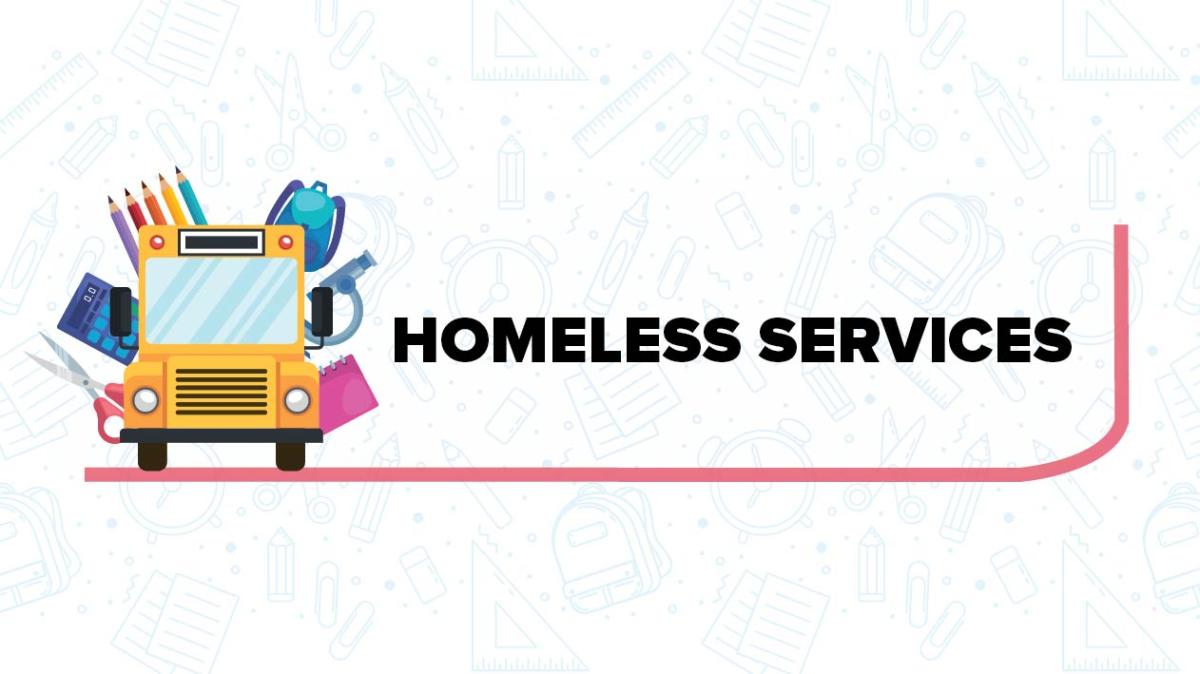
City Schools provides a variety of supports to support students that are homeless or have challenging circumstances. Please review our frequently asked questions below to learn more.
What does it mean to be homeless?
Under U.S. federal law, students who have no fixed nighttime residence are considered “homeless.” This includes
Living in a car, park, abandoned building, substandard housing, bus or train station — or any place not intended as a regular place to sleep for a child, teenager, or adult
Living in a motel, hotel, or campground because there’s nowhere else available
Living in an emergency or transitional shelter
Living with family or friends because of eviction, foreclosure, fires, natural disasters, and etc.
Is doubling up or couch-surfing the same as being homeless?
YES.
When students — with or without other family members, parents, or guardians — stay with extended family or friends because of a loss of housing they are considered homeless under the law. This means that they are entitled to and eligible for services provided to all other students and families experiencing homelessness.
What will schools do to support homeless youth and families?
Once a school knows a student is experiencing homelessness, staff will...
Immediately enroll the student in school. Students in kindergarten to grade 5 can stay at the school they attended before loss of housing or they can transfer to the zoned school serving the neighborhood where temporary housing is located. Middle and high school students can attend a school determined through the district’s school choice process.
Arrange for transportation if temporary housing is outside the school’s walk zone.
Waive any school fees, including field trip fees or other school-related activities.
Provide the student with uniform vouchers.
Provide additional supports to make getting to and staying in school possible.
What can a student or family do if they disagree with a decision about school placement or resources?
If a student or family disagrees with City Schools’ determination of eligibility or type of services provided, they may appeal the decision. To start the appeal, the student or family should ask for a formal conference with the school principal. If the student or family still disagrees with the decision, they may request a grievance hearing.
During the appeals process, students have the right to enroll immediately in the closest school that they are eligible to attend or to remain enrolled at the school of origin.
Best Interest Determination
Baltimore City Public Schools is committed to what is in the best interest of homeless children and youth. The determination of a homeless student’s placement from among the schools they are eligible to attend is known as a “best interest” determination. City Schools must make a best interest determination for each homeless student.
City Schools is responsible for enrolling homeless children and youth in the school that is in his or her best interest, and for providing prompt and sensitive service to parents and children who need assistance.
Resources
Homeless Supports:If a student or family is experiencing homelessness, they should contact their school’s social worker. Families and students can also call City Schools’ Homeless Liaison at 410-396-0775 or visit 2000 Edgewood Street, Baltimore, MD.
Families and students can also call Homeless Services: 410-396-0775
Outreach and Foster Care Email
For information about meals, please visit our meals and menu page
